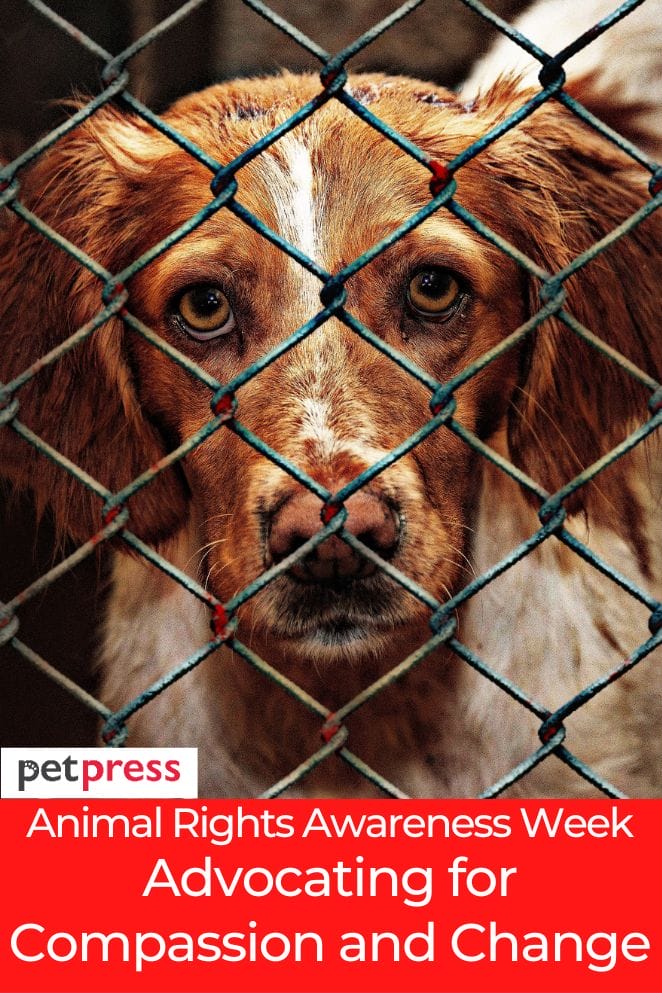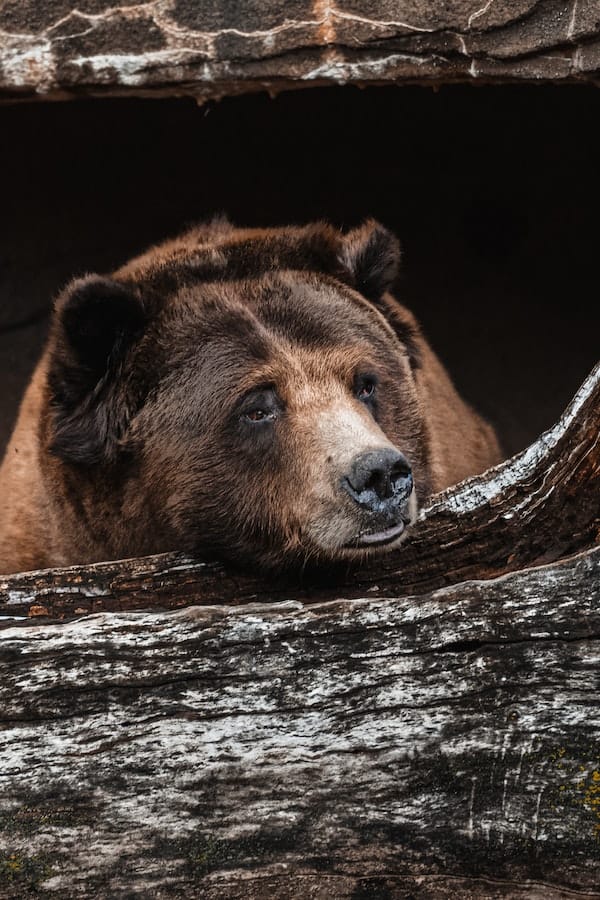
Animal Rights Awareness Week is an important occasion that provides a valuable platform to bring attention to the significance of acknowledging and upholding the rights of animals.
This annual event, observed from June 19 to 25, serves to increase public consciousness regarding the diverse challenges animals encounter and encourages individuals to actively contribute to positive change in their daily lives.
In this blog post, we will delve into the historical background of Animal Rights Awareness Week, expound on the fundamental reasons why animal rights are crucial, explore the various forms of abuse and exploitation animals endure, present informative data concerning animal cruelty, suggest practical steps we can take to support animals, and conclude by advocating compassion.
The History of Animal Rights Awareness Week
Animal Rights Awareness Week originated in 1995 as a means of commemorating the historical advancements in animal rights.
It is worth noting that on June 19, 1975, the inception of People for the Ethical Treatment of Animals (PETA) occurred, thanks to the joint efforts of Ingrid Newkirk and Alex Pacheco.
PETA’s profound mission revolves around eradicating animal suffering through initiatives such as public education, grassroots activism, conducting cruelty investigations, research endeavors, legislative endeavors, and engaging with corporations.
To pay homage to the significant strides made in animal rights and advocacy, Animal Rights Awareness Week was established by PETA in 1995 as a recurring occasion dedicated to enlightening and creating awareness about the multifaceted challenges confronted by animals.
Since its inception, numerous activists, organizations, and individuals have actively engaged in this weeklong event to champion animal rights and combat the scourge of animal abuse.
Why Animal Rights Are Important?

Recognizing and protecting animal rights is crucial for several reasons. Here are some reasons why we should prioritize animal rights:
Animals are sentient beings.
Animals, much like humans, have the capacity to experience pain and undergo emotional suffering.
They should never be treated as mere instruments or tools but rather revered and valued in their own right.
It is our inherent ethical responsibility to prioritize their well-being and incorporate their welfare as a fundamental factor when making choices concerning their lives.
Animal cruelty is a major problem.
The prevalence of animal cruelty remains a persistent concern within our society, demanding our immediate attention and concerted efforts for resolution.
Regrettably, animals frequently endure neglect, mistreatment, and exploitation for a range of motives.
As fellow inhabitants of the animal kingdom, it becomes our solemn duty to actively combat these acts of injustice and guarantee the provision of dignity and reverence to all animals.
Animals are valuable members of the environment and need protection.
Animals hold a distinct and irreplaceable position within our natural environment, underscoring the urgency of our commitment to their safeguarding.
By upholding the preservation of their habitats, we uphold the intricate equilibrium of ecosystems, ensuring their sustainability in the long run.
Moreover, animals bestow upon humanity an array of advantages, including valuable contributions to medical research and serving as a vital source of sustenance.
Animal exploitation results in the suffering of countless animals every year.
The unfortunate truth remains that numerous animals endure unimaginable suffering annually as a consequence of exploitation.
In various industries, including factory farming, animal testing, fur farming, circuses, and entertainment, millions of animals are subjected to immense physical and psychological torment.
It becomes our moral obligation to advocate on their behalf, emphasizing the importance of their rightful treatment and ensuring that they are accorded the dignity they deserve.
Different Ways That Animals Are Abused and Exploited

Sadly, animals face various forms of abuse and exploitation in different industries and contexts. These include:
Factory farming
This type of farming involves the mass production of animals in confined areas for food production.
Animals are kept in cramped and unsanitary conditions, denied basic necessities such as access to sunlight or space to roam, and fed unnatural diets designed to maximize growth with minimal effort.
Animal testing
Animal testing is a research methodology that employs animals to evaluate the safety of treatments, medications, and products for human use.
Tragically, these procedures frequently entail harsh and inhumane practices, leading to severe physical and psychological anguish for the animals involved.
Fur farming
This particular form of agriculture centers on the deliberate breeding of animals with the sole intention of obtaining fur.
Animals like foxes, mink, and rabbits are commonly confined to overcrowded enclosures, deprived of essential nutrition, exercise, and social interaction.
In some distressing instances, these animals may even endure the unimaginable cruelty of being skinned while still alive, all in pursuit of maximizing fur production.
Circuses
In the realm of entertainment, animal circuses exploit animals for amusement.
These creatures are coerced into performing unnatural and perilous acts, such as walking on two legs or leaping through flaming hoops.
Regrettably, these acts are often achieved through physical mistreatment, as animals are subjected to abuse to compel their compliance.
Entertainment
Animals frequently find themselves involved in diverse entertainment endeavors, including petting zoos, rodeos, horse racing, hunting, and even advertisements.
Unfortunately, this involvement often exposes them to physical mistreatment or prolonged captivity, all in the pursuit of enhancing their appeal or market value.
Moreover, animals may be coerced into engaging in unnatural activities, leading to immense distress and suffering.
Statistics About Animal Cruelty

The sheer magnitude of animal cruelty statistics is deeply alarming.
Each year, countless animals endure unimaginable suffering inflicted upon them by human actions.
It becomes imperative for us to proactively combat these injustices and strive to eradicate them entirely.
Here are several significant statistics shedding light on the gravity of animal cruelty:
| Category | Statistics |
| Animal Abuse Cases |
Over 1 million reported cases annually
|
| Farm Animal Cruelty |
70 billion land animals raised for food each year
|
| Animal Testing |
Approximately 115 million animals used in experiments annually
|
| Wildlife Poaching |
Over 35,000 elephants killed each year for ivory
|
| Pet Abandonment |
Millions of pets abandoned or surrendered to shelters annually
|
| Dogfighting |
Estimated 20,000 organized dogfighting rings worldwide
|
| Animal Neglect |
Thousands of cases of neglect reported annually
|
| Illegal Wildlife Trade |
Fourth largest illegal trade globally, worth billions of dollars
|
| Cockfighting |
Prevalent in over 70 countries, involving millions of roosters
|
| Marine Animal Exploitation |
Millions of marine animals affected by bycatch, pollution, and habitat destruction
|
Please note that these statistics are approximate. It is important to raise awareness and take action to combat animal cruelty in all its forms.
Different Ways That We Can Help Animals:

Fortunately, there are numerous ways in which individuals can contribute to improving animal welfare and promoting animal rights.
Some practical actions include:
Adopting a plant-based diet
Choosing to embrace a plant-based diet stands out as a powerful strategy to alleviate animal suffering significantly.
By consciously eliminating all animal-derived products, including eggs, dairy, and meat, individuals can make a substantial positive impact.
Supporting cruelty-free products
An additional avenue to champion animal welfare involves endorsing cruelty-free products.
This entails the conscious selection of items that have not been subjected to animal testing or contain any animal-derived components.
It is crucial to exercise mindfulness regarding the ingredients present in the products we purchase, conducting thorough research before making a decision.
By doing so, we actively contribute to the cause of promoting the ethical treatment of animals.
Volunteering at animal shelters or sanctuaries
Animal shelters and sanctuaries play a vital role in offering a secure refuge for animals that have suffered from abuse, neglect, or abandonment.
By actively engaging in volunteer work at these establishments, individuals contribute to providing the necessary care, love, and attention these animals deserve.
Volunteering not only assists in their well-being but also serves as a valuable opportunity to expand their knowledge about animal welfare and actively participate in the ongoing battle against animal cruelty.
Advocating for legislative changes
Taking a proactive stance against animal cruelty involves advocating for legislative reforms.
This entails reaching out to lawmakers, urging them to enact laws that safeguard animals from mistreatment and exploitation.
Reputable organizations like PETA, the Humane Society, and World Animal Protection offer valuable resources for gathering information on effective ways to drive change through advocacy.
By utilizing these resources, individuals can actively contribute to the movement for animal welfare and propel meaningful legislative transformations.
Educating others about the importance of animal rights.
Spreading awareness through education represents a significant avenue for aiding animals.
This can be achieved through diverse means such as organizing social media campaigns, signing petitions, and engaging in conversations with individuals in our circles to highlight the importance of animal welfare.
By educating others, we have the power to ignite consciousness and inspire a larger number of people to actively contribute towards the protection of animals.
Conclusion
Animal Rights Awareness Week serves as a poignant reminder of our moral duty to safeguard and honor the rights of animals.
By acquainting ourselves with the origins of this significant event, appreciating the intrinsic value of animal rights, acknowledging the widespread mistreatment and exploitation animals endure, and actively engaging in actions that support their welfare, we can forge a future characterized by compassion and harmony.
Let us stand as unwavering advocates for change, striving to create a world where every being is treated with unwavering empathy, dignity, and compassion.


GIPHY App Key not set. Please check settings